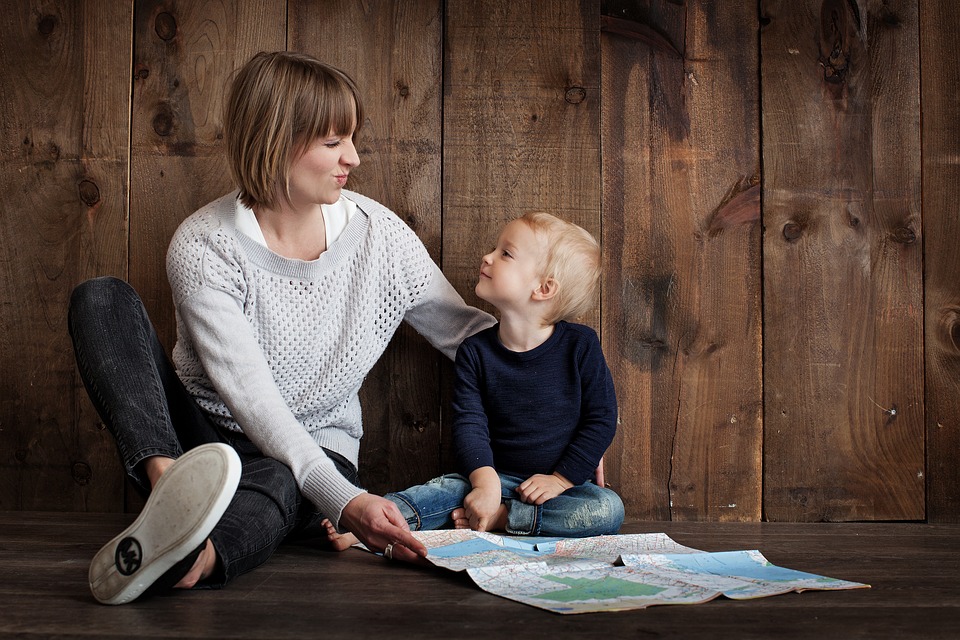Kids really are like sponges, and they learn so much more from our actions than our words (for more on this, view my article, “I Want to be a Better Mom”: Let’s Look at Lessons We Teach Our Kids that We Should Listen to Ourselves). Today I want to focus on showing our kids, by example, how to respect someone’s presence and time. The first step? Respecting their presence and time.
Understand Their Developmental Stage
Kids develop rapidly, and it feels like they’re always growing into a different stage of life. Do a little research on their cognitive abilities and behavioral tendencies during their current age. Having this knowledge in the back of your mind will help you meet them at their level–during play, during interaction, any time.
Get Down on Their Level
I mean this figuratively and literally. Getting down to eye contact level helps our kids learn how to communicate, and also helps them feel their opinions are just as important as yours. Plus, eye contact on the same level helps both of you feel more engaged in the conversation.
Turn Off Technology
Turn it off, all the way. We spend so much of our time in front of the screen, and if your child sees you giving more attention to your phone than their face, they could form an unhealthy opinion or habit. I’ll admit, I’ve relied on TV and other tech mechanisms to occupy my kids when I’m trying to work. Then I designated no tech times and I’ve been conscious about giving my kids attention and putting down the technology. No, I’m not saying you should throw all screens in the dumpster either; you just have to find ways to interact with technology and ways to interact with your kids–ways that work for you.
Give Them Your Full Attention
Have you ever been talking to someone in a public place, and they keep looking away or
answer you with “uh-huh”? That’s how your kids feel when you’re in another world, thinking about chores and bills and whatever else is cluttering your mind. Take time to give your full attention to your kids. I get it, sometimes you just don’t want to read that book or play that game for the 30th time today, but they are excited about it, and they want to share that joy with you — and that is so much more fulfilling than worrying about what you have to do later. It doesn’t need to be huge blocks of time. In fact, just 10 or 15 minutes intervals throughout the day is enough to show your interest in their lives. They are become independent people and oftentimes don’t mind playing on their own.
Being a better mother to your toddler starts with small steps … one of them being to start being easier on yourself and accepting that you are already being a good mother.

